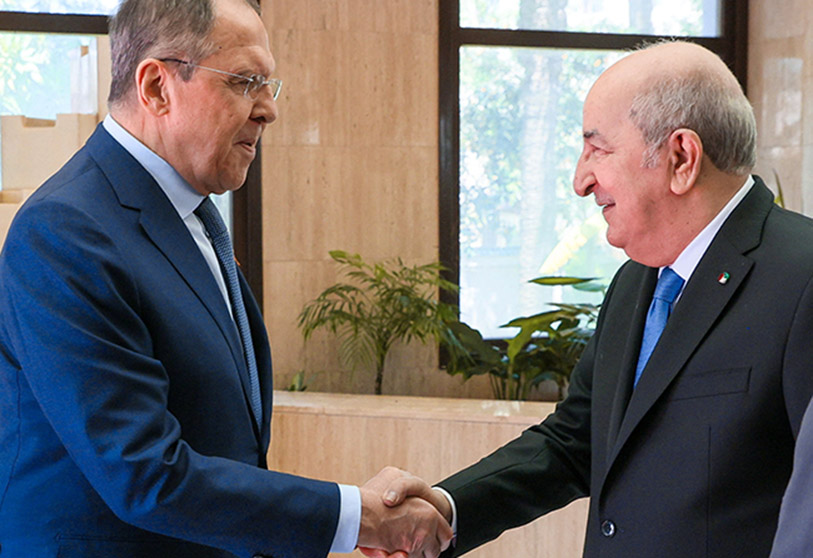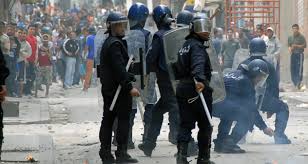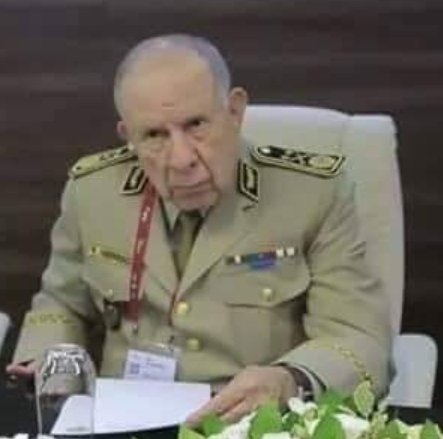In a bid to maintain their strong grip on power and avoid U.S. sanctions for financing Moscow’s war in Ukraine through the purchase of Russian weapons, the Algerian rulers started distancing themselves from their Russian historical ally and main arms supplier.
According to Spanish newspaper “El Confidencial” and French daily “Courrier International”, the Algerian military junta bowed to the American pressure as evidenced by the cancellation of a military exercise that was expected to take place with Russia late November in the province of Bechar, south-western Algeria.
The cancellation of the “Desert Shield” drill was announced by an Algerian TV station without giving any explanation, while the Algerian Defense department remained silent.
In September, a group of U.S. Democrat and Republican Congressmen voiced concerns over Algeria’s growing ties with Russia and demanded sanctions on the Algerian regime for purchase of Russian weapons.
“There is no sugarcoating it, Algeria’s growing relationship with Russia poses a threat to every nation across the globe” said Rep. Lisa McClain.
“Just last year, Algeria finalized an arms deal of over $7 billion with Russia, which included an advanced Russian fighter aircraft that have never been sold before”, added McClain in a letter signed by 27 lawmakers and addressed to U.S. Secretary of State Blinken to assert his sanctions authority.
“The United States needs to send a clear message to the world that the support for Vladimir Putin, and his regime’s barbaric war efforts will not be tolerated,” said the U.S. congressmen.
In October, U.S. ambassador to Algiers Elisabeth Moore Aubin said she asked Algerian authorities to reduce their imports of Russian arms.
“We have advised our partners who buy weapons from Russia to diversify their sources of supply and look to non-Russian suppliers,” she added, noting that the U.S. is open to discuss with Algeria foreign military sales as the country increased military spending by 130 pc to $22.7 billion in 2023, from $9.3 bln earmarked in 2022 due to spike in oil & gas revenues.
Two weeks ago, a top U.S. National Security delegation conferred separately with President Abdelmadjid Tebboune and Army Chief of Staff on “ways to continue to work together for peace & stability” and “counter terrorism in the region”.
Algerian President is expected to travel this month to Moscow for an official visit to seal “strategic relationship” between the two countries but press reports cast doubts over this trip amid emerging news over concerns about his current health status.
If Tebboune’s planned visit to Russia is called off, cracks will appear in the Algerian-Russian relations. However, the break-away from Moscow will not be easy for the Algerian regime as its army has so many Russian-made weapons that need maintenance and servicing which Russian companies are not able to provide due to the war in Ukraine.
In November, Members of the European parliament had likewise addressed a letter to the European Commission Vice President Josep Borrell and EU Commission President Ursula von der Leyen, expressing that they are “deeply concerned” about the “ever-growing” ties between Russia and Algeria amid the Ukraine crisis.
According to some analysts, the Algerian regime, which depends solely on hydrocarbons and its army for survival, has realized that it has been backing the wrong horse and need now to transform its military equipment.
However, many experts wonder whether the Algerian army can handle such a transformation amid tainted procurement operations and whether Algiers would remain loyal to Moscow or turn towards Washington and the EU. In all cases, Paris appears to hold the key for such Algerian geopolitical realignment!



